August 23, 2024. I landed at Gold Coast airport to discover that my opponent had changed. I had thought I was fighting someone named, Leon Irwin. I’d tried to do some research but had found out nothing about him. Now I was fighting a Brad Glenn, about whom I also knew nothing.
The promoter said to me, “you won’t have any trouble with him”, but that didn’t reassure me. I remember my professional debut in 1996. The promoter then had told me, “don’t worry about your opponent. He’s had three fights but he ony won one of them. His opponent got so tired of hitting him, he fell over.” It wasn’t until I climbed into the ring for that fight that I found out the truth. The ring announcer introduced my opponents as having had seven professional bouts, all wins!
I saw a recording of my opponent weighing in. He looked to be in his 40’s (around 20 years younger than me). He was a bit bigger than me, and he was sporting a mohawk! There was no more information forthcoming from the promoter so I didn’t push. There was no point. I recalled the wisdom of Robert E. Lee – that you do everything you can to prepare, and then you leave it in hands of the Lord of Battles.
I wished the mohawk man the best of luck when I first saw him that night. As it turned out, he needed it. He was not an experienced fighter at all, and they never should have matched him against me. Our attire said it all. He went in wearing a singlet and headgear. I had no singlet and no headgear. He was dressed as an amateur, and me as a pro, and web performed accordingly.
Brad Glenn is a lovely guy, and he could also take a hit. My cornerman, Grant, says I carried him in the first round but I don’t think so. I threw some very heavy shots and he withstood the entire barrage, at least for that round. The referee stopped the fight early in the second and I’m glad he did. I didn’t want to damage the man, and was able to enjoy a drink with him later in the evening.
I thought I’d be getting an early shower but then the promoter asked me if I wanted to back up for another fight – this time with Steven Estaban!
Estaban had beaten me in our last encounter on December 23, 2023. Going into that fight, I’d been told that Estaban was an amateur champion with no professional record. After the fight he told me that he’d had more than seventy professional fights in Argentina before arriving in Australia. His experience had been obvious in the way he fought.
I’d only lost on a split decision at that last encounter so I knew we were a good match. Moreover, I liked the man, and didn’t want to see him do all the training and travelling for no benefit. I asked the promoter if he was going to pay me for the second fight. He refused, but I decided to do it anyway, for Steve’s sake.
Estaban once again showed himself to be a true professional in the ring. He is slightly smaller than me but he has excellent footwork and focus. He took control in the first round by stepping to the outside of my lead foot and leading with his right hand. He scored one cracking right hand to my jaw along with some excellent body shots. The first round was his.
Grant, my cornerman, tore into me after the first round and told me to get moving. I’ve always been a slow starter. I do well over an extended number of rounds which is why the pro-style suits me so much better than the amateur which is more like a sprint. Even so, I managed to kick in much harder in the second round. Grant figured I might have won the round. Even so, there were only three rounds, so I was going to have to win the third, and win it well, if I was going to win the fight.
I came out firing in the third. My opponent, Steve, said to me after the bout that when we had met the previous December, I had tired in the third round, and he was right. This time I’d gone on an amazing diet where I’d lost almost six kilograms in five days. I thought my energy might flag this time as a result. It didn’t.
I kept the pressure on throughout that last round though I was feeling frustrated that I just couldn’t land anything decisive on the elusive Estaban, and then, in the closing seconds of that final round, my left hand connected squarely with his jaw, and the whole world slowed down.
It was truly surreal. I saw the expression on Steve’s face suddenly go blank, then he stumbled to the left, then he spiralled, then he fell, and it all seemed to be in slow motion. I just stood there. The referee was holding me back with one hand but he didn’t need to. I was spellbound by the magic unfolding before my eyes. It was probably only a couple of seconds before the spell broke but it was a spectacular moment. All my years of training – my thousands of hours of running, sweating, punching and gasping – were coalescing into this fateful moment. I had knocked my opponent to the canvas!
There was no count as the bell had gone, but the split decision went my way this time. Now we’re looking to a ‘decider’, though I want to make sure we get paid for the next one.
Yes, it was a big night of boxing for me – the highlight of my boxing career thus far. I’d gone into that night asking God whether there was any point me continuing with the fight game at age 62. A lot of people think I’m deluding myself, reckoning that I can continue with this at my age. I took that night’s experience as a divine imprimatur on my pugilistic endeavours. I’m going to keep pushing forwards.
I’ve now been offered a shot at an Australian title in November. If that comes off, it could lead to things even bigger and better! Perhaps I’ll get to fight overseas again? Perhaps I’ll be able to generate enough money to fund all the work we want to do at our bush camp? Perhaps. Perhaps.
Boxing has done a lot for me. At a personal level, it keeps me sane. From a ministry perspective, it has been the key to all my work with vulnerable people – from people with substance-abuse problems to the mentally unwell, to friends who just seem to be drifting aimlessly. The intense engagement of the boxing ring can have a transformative effect. It’s transformed me, and it continues to transform me. Do consider joining me if you’d like to be a part of the process

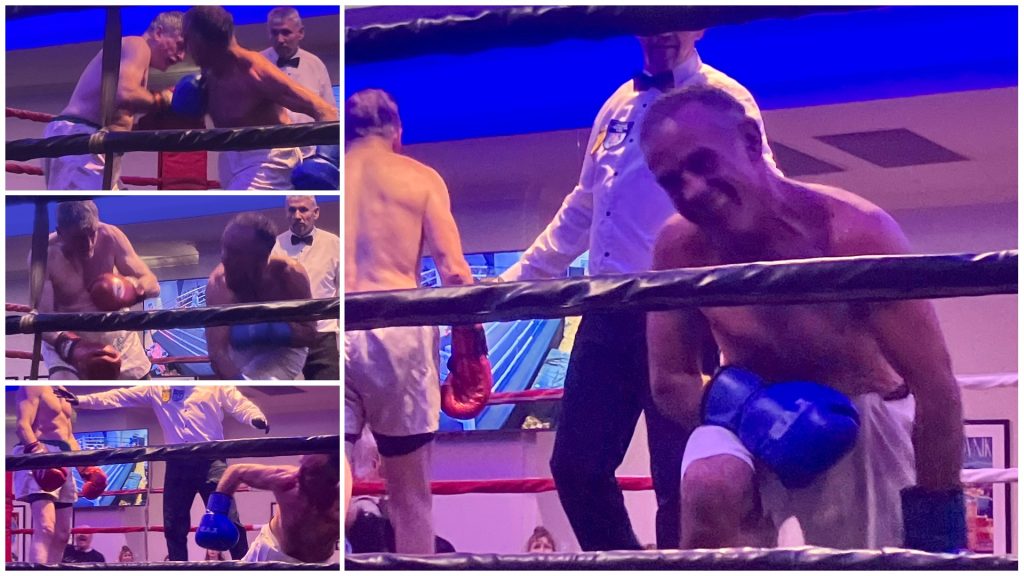
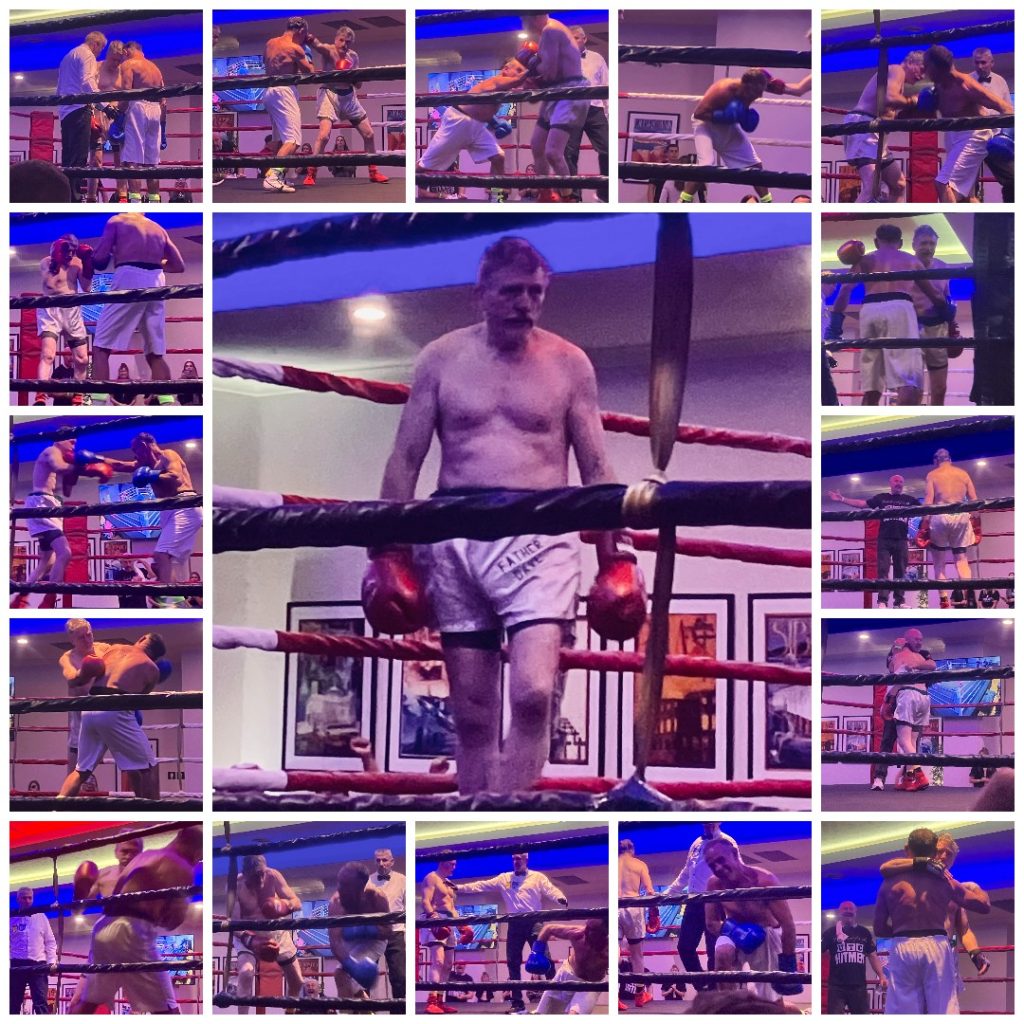

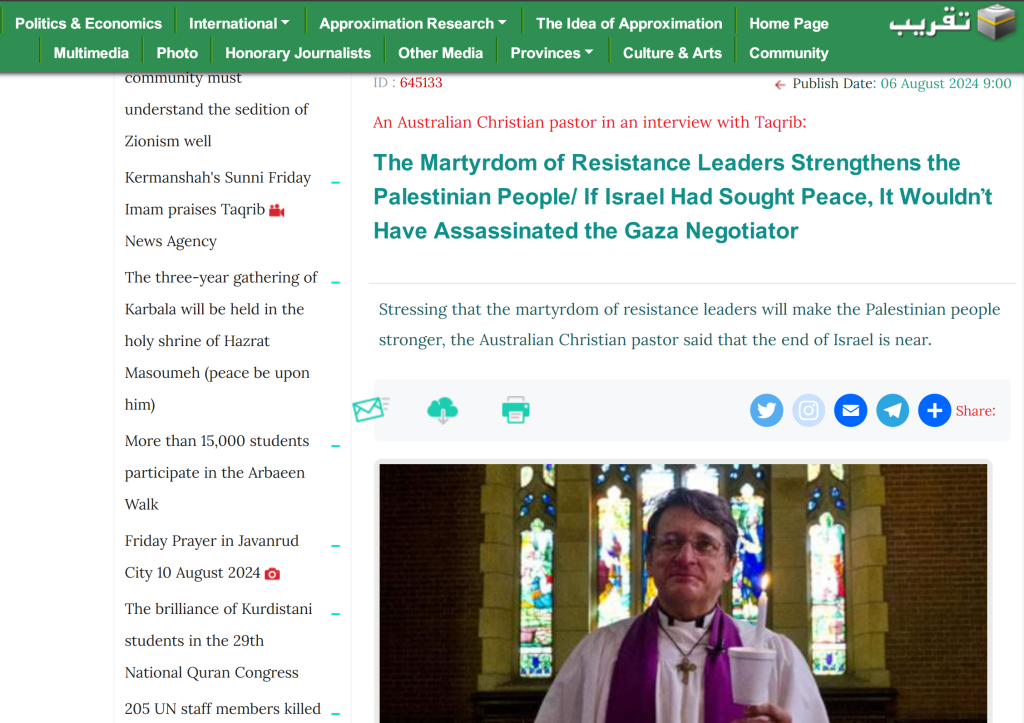
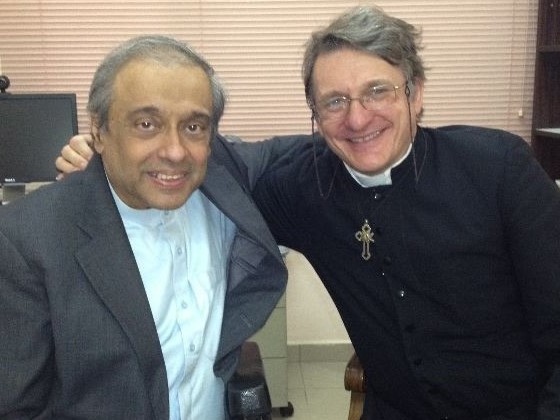
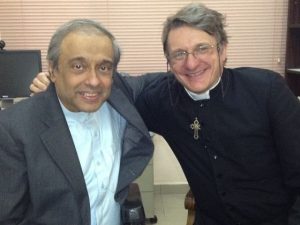
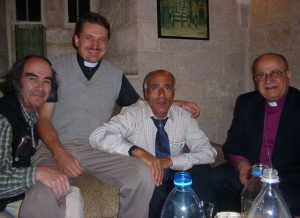
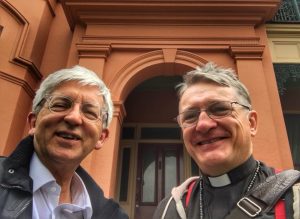
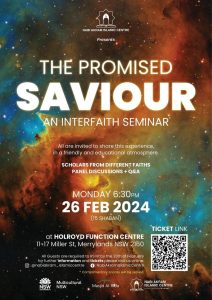
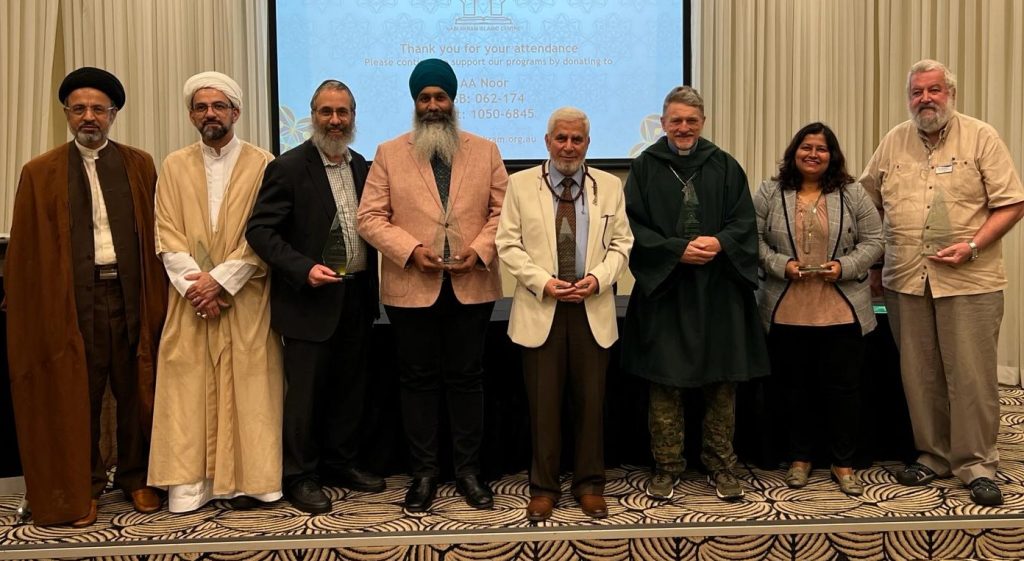
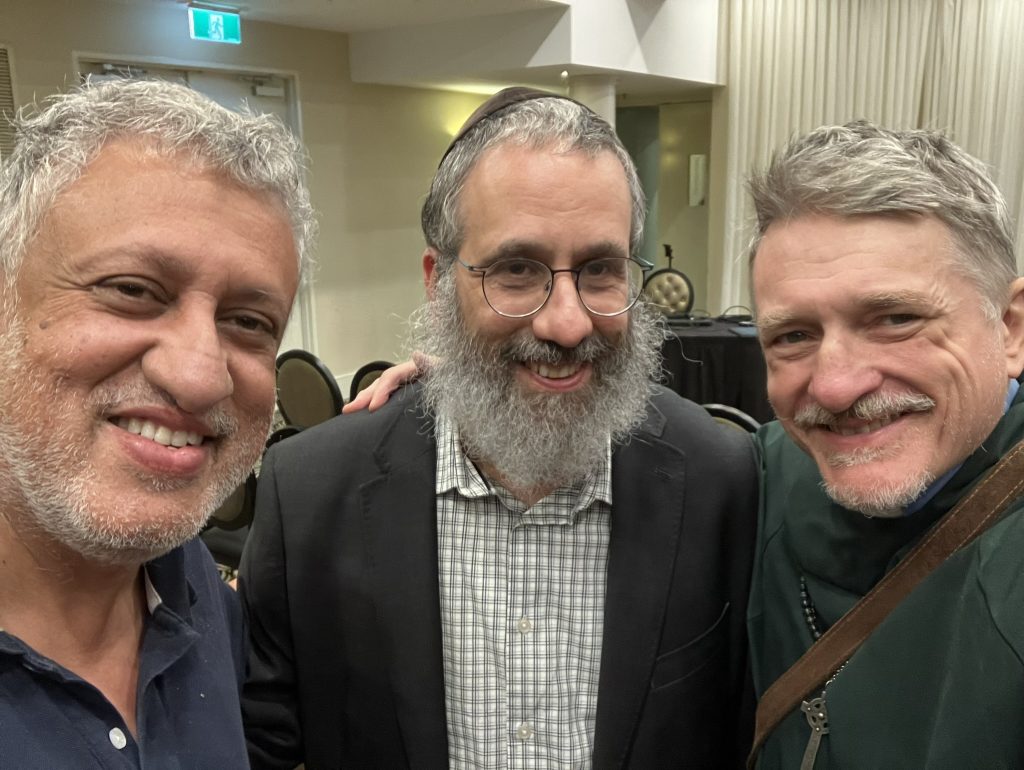
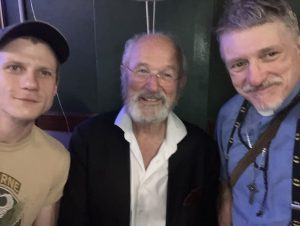
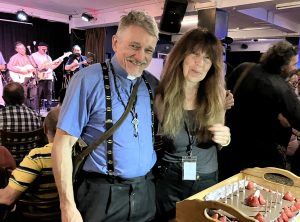
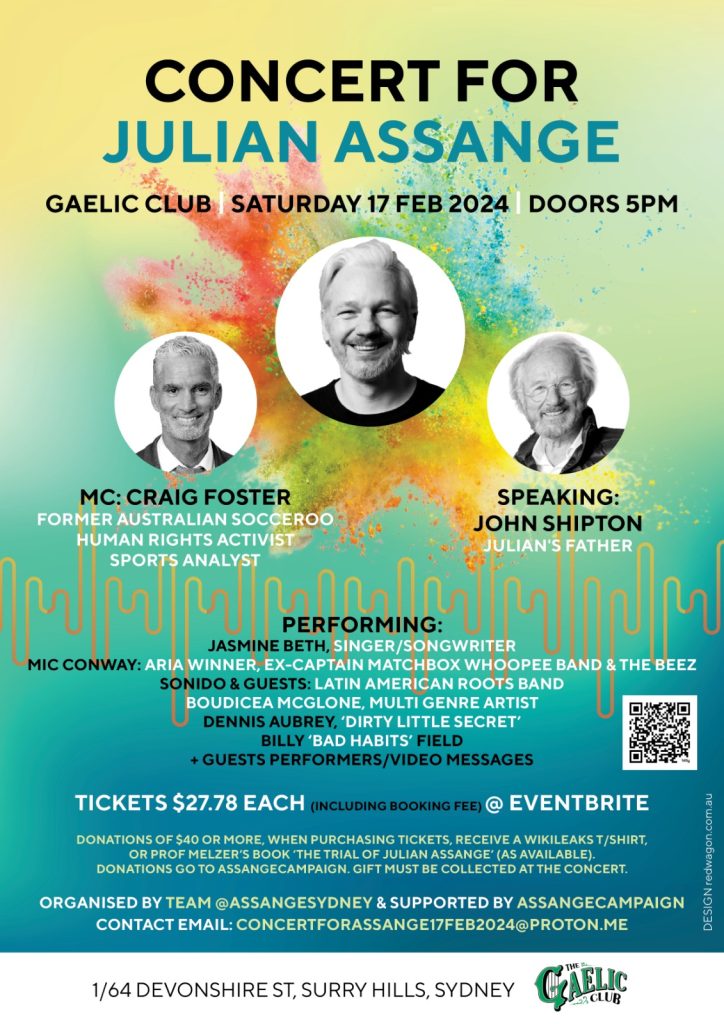
Journalists who tell the truth!
The following article was written by my friend, Dr Chandra Muzaffar and entitled, “Kudos to journalists who tell the truth”. It is republished with permission.
UNESCO should be congratulated for awarding the Guillermo Cano World Press Freedom Prize for 2024 to Palestinian journalists covering Gaza. The prize this year was announced in Santiago, Chile in conjunction with World Press Day on 3 rd May 2024.
The prize named in honour of a Colombian journalist murdered in 1986, Guillermo Cano Isaza, is a recognition of the courage shown by journalists who are prepared to carry out their responsibilities in the face of grave danger. Guillermo was a newspaper editor who was a vocal critic of drug barons in his country and in South and Central America.
It is an indisputable truth that journalists in Gaza have been confronting the reality of death every day of their lives in the last 7 months as Israeli bombs rain their congested homeland and Israeli bullets target any child, woman or man who inhabits that
narrow strip of land. Up to this point – 7th May 2024 – 143 journalists have lost their lives in the Israeli assault on Gaza.
This is the largest number of journalists killed in a conflict within a certain period of time in a certain demographic setting.
The number of journalists killed should be viewed in the context of the huge massacre that has taken place in Gaza since October 7th. Israel – mainly its armed forces and Zionist settlers who are allowed to kill Palestinians at random – have annihilated at least
35, 000 people in the course of the last seven months.
It is heart-rending to know that about 70 per cent of those killed are children and women. Indeed, more children have died in the present conflict in Gaza and the West Bank than in any previous assault upon Palestinian territory since 1948 when the state of Israel was established.
If the story of this senseless slaughter has been told to the world, it is not simply because of the courage of the journalists associated with the conventional media. The alternative media have also played a significant role.
Within the alternative media in Gaza are a large number of citizen journalists telling the truth to relatives and friends through their handphones and other channels. They too are heroes and heroines because of their indomitable courage and their willingness to take great risks, risks which place their very lives in peril.
It is because these citizen journalists had shared their stories with certain conventional media channels which in turn had scrupulously verified the news and information they had received that so much of what was, and is, happening in Gaza is now known to the world.
A television station operating in both Arabic and English which helped to disseminate the actual happenings in Gaza and the West Bank far and wide was of course the Qatar based Al Jazeera. Al Jazeera also has its own huge network of journalists on the ground whose courage and integrity are awe inspiring.
Through their commitment to truth and justice, they have raised journalism to a loftier level. It is a shame that such a television station should now be banned by the Israeli authorities from reporting from Occupied Palestine or Israel proper.
It only confirms that the Israeli state does not want the world to know the truth about what it is doing in Gaza. But the truth will prevail in the end. That is the immutable law of life.
After more than 75 years of oppression and suppression, of extermination and expulsion, millions and millions of people all over the world have come to know about what Israel really is, and what it has been doing to the Palestinians and other Arabs.
Israel is exposed as never before. The whole world now knows that it is an arrogant, cruel and inhuman state and society. It is so selfish and self-serving that it has brought about its own downfall.
At this juncture it should also be emphasized that while Israel is perpetuating colossal injustices against Palestinians, there are also millions of Jews in North America and Europe who are against Israel’s ethnic cleansing of Palestinians. They want the rights of the Palestinians restored.
They are convinced that Jews, Christians and Muslims can live together in peace and harmony.
Together with Palestinians and millions of others from every continent and community, they would applaud Unesco’s decision to award this year’s World Press Freedom prize to Palestinian journalists covering the catastrophe in Gaza.
Dr Chandra Muzaffar is the President of the International Movement for a Just World (JUST)